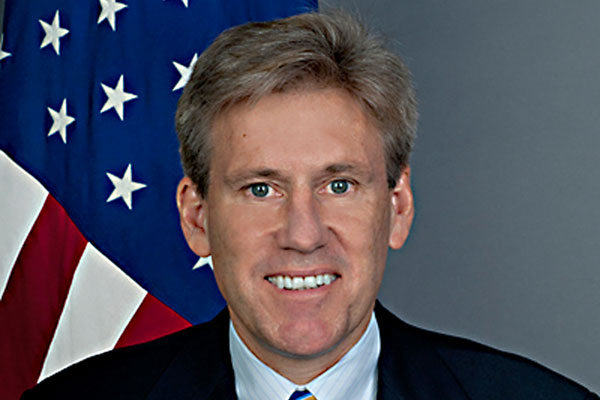With Sunday’s 60 Minutes segment on Benghazi, CBS renewed interest in a calamity that the Obama Administration had hoped would be long forgotten.
However, until the American people, Congress, and the families of the four American victims of the terrorist attack on September 11, 2012, have more and better answers and until the guilty have been brought to justice, this scandal will not go away. As a result of CBS reporter Lara Logan’s report, the blogosphere has erupted in recriminations over Benghazi once again.
At the center of the piece is one of the few eyewitness accounts to the attack on the record. (Senator Lindsey Graham [R–SC] on Monday threatened to hold up confirmation of Obama Administration nominations unless it makes 14 eyewitnesses available to the congressional investigative committees.)
The eyewitness interviewed by CBS appeared under the pseudonym Morgan Jones. He is a British former security chief for Blue Mountain Security, an unarmed security company, which was supposed to work with the Libyan militia also assigned to guard the American diplomatic personnel. Also appearing are Gregory Hicks, then deputy chief of mission in the U.S. embassy in Tripoli, and Andy Wood, senior security official at the embassy.
Throughout the summer it was clear that the Libyan militia was totally inadequate for the job, routinely found in their office drinking tea and laughing rather than manning the gate. They could clearly not be trusted to defend the compound in the event of an attack. Meanwhile, al-Qaeda was flying its black flag over government buildings in Benghazi and had even posted its intentions of the Internet, as Wood explains: First an attack on the International Red Cross, then an attack on the British, and finally an attack on the Americans. Two of those had taken place just as promised.
The night of the attack, Jones had received a phone call from one of his security guards at the U.S. compound. “He said, ‘We are under attack.’ He was running and sounded scared.” Jones ran to the compound, grabbing a rifle, which he used to bash an attacker’s face in, as he scaled the perimeter wall. At that point, Stevens was missing. The attackers were all over the compound. Local Libyan staff was brutally pistol whipped and eventually let go by the attackers.
Later that evening, Jones snuck into a local Benghazi hospital where he had heard that a dead American was located. One glance told him it was his friend Chris Stevens in the hospital room. Only hours before, the two of them had discussed the lack of security at the compound, and now the horror had struck. Jones says he had never been so angry.
Those on the ground in Libya voice no doubt that the attack was sophisticated and coordinated. The shelling of the CIA annex, where the battle subsequently moved, showed a high degree of precision, with three direct hits to its roof in the dead of night.
The 60 Minutes segment stops short of assigning blame for the Obama Administration’s failure to provide adequate security or military support for the Americans in Benghazi. An investigative piece on the Washington angle of the story, which has been far from fully told, is a much-needed follow-up.





























